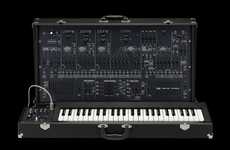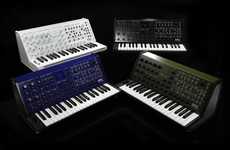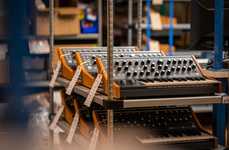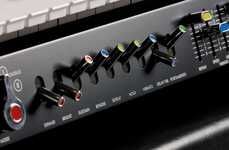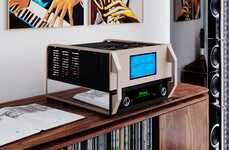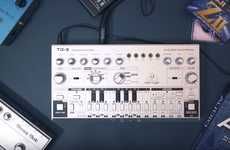
The Moog Synthesizer IIIc is Being Re-Released in a Limited Run
Towards the end of the 1960s, Bob Moog and a team of skilled technicians would design the Moog Synthesizer IIIc, and the history of music would henceforth change forever. Along with the Synthesizer I and II, the Moog products would come to usher in a new era, allowing musicians to create entirely computerized sounds and thus the first ever fully electronic music. Now, Moog is going back to its history by releasing a limited run of brand new, authentically built Moog Synthesizer IIIc machines.
Though Moog is only releasing 25 IIIcs, there's a reason for the limitation. The company is building the machines using completely original documentation, art, and circuit board files that have been wisely preserved over time. They will be built at the Moog factory in Asheville, North Carolina, and sold worldwide.
Though Moog is only releasing 25 IIIcs, there's a reason for the limitation. The company is building the machines using completely original documentation, art, and circuit board files that have been wisely preserved over time. They will be built at the Moog factory in Asheville, North Carolina, and sold worldwide.
Trend Themes
1. Vintage Synthesizer Reissues - Companies are re-releasing iconic vintage synthesizers with modern upgrades, satisfying nostalgic musicians and modern producers alike.
2. Heritage Design Comebacks - Brands are revisiting their archives to revive historically popular products, capitalizing on market demand for retro styles and designs.
3. Analog-to-digital Revamps - Analog technology is being upgraded with modern digital features, creating hybrid products with the benefits of both worlds, driving innovation in sound engineering and production.
Industry Implications
1. Music Equipment Manufacturing - The return of retro synthesizers presents a unique opportunity for music equipment manufacturers to tap into the growing demand for vintage and heritage products, while also integrating modern technologies to attract new customers.
2. Consumer Electronics - The success of heritage product revivals in the music industry has implications for other consumer electronics, as manufacturers may see similar demand for retro products among consumers looking for a mix of nostalgia and modern functionality.
3. Audio Engineering and Production - As analog and digital technologies continue to merge, there is a growing opportunity for audio engineering and production companies to innovate and push the boundaries of what's possible in music and sound design.
1
Score
Popularity
Activity
Freshness


